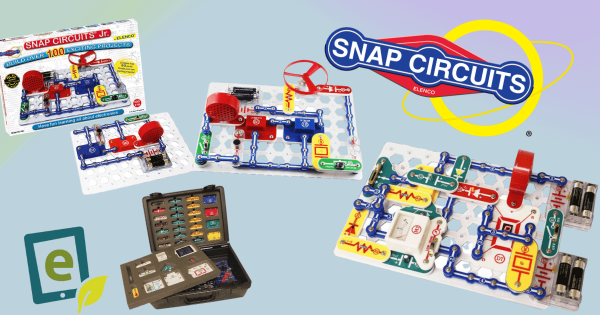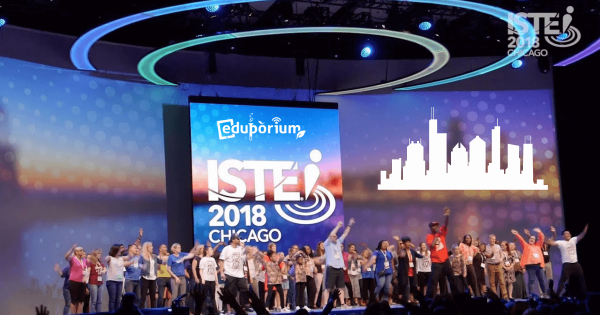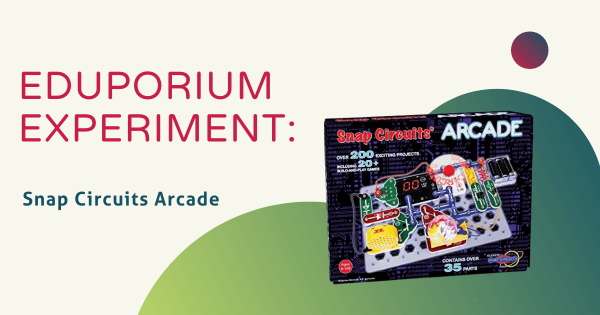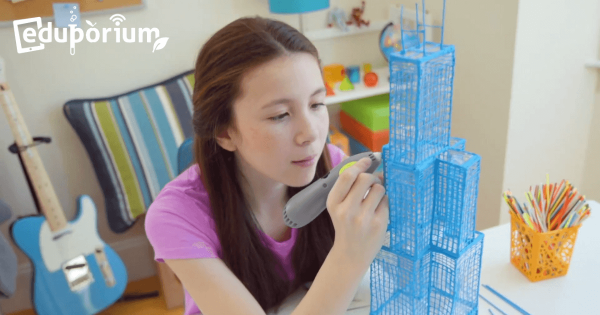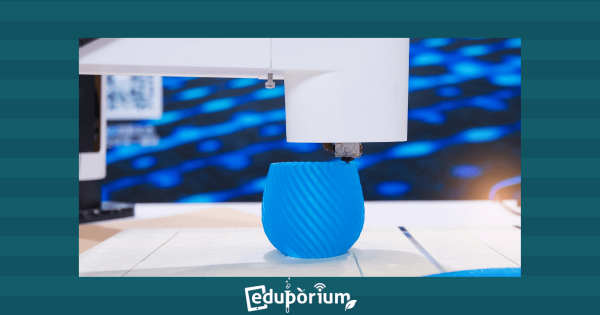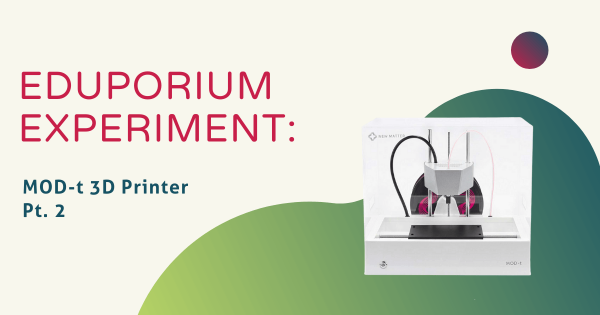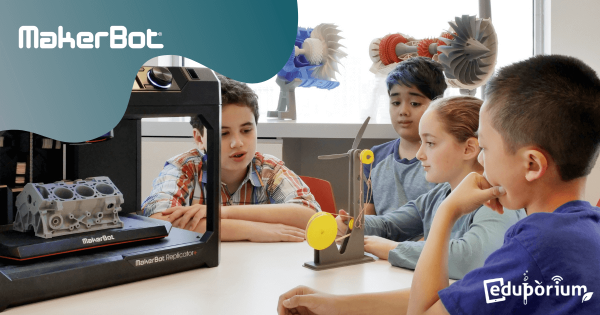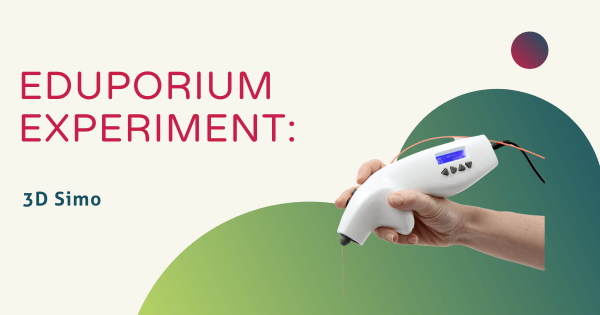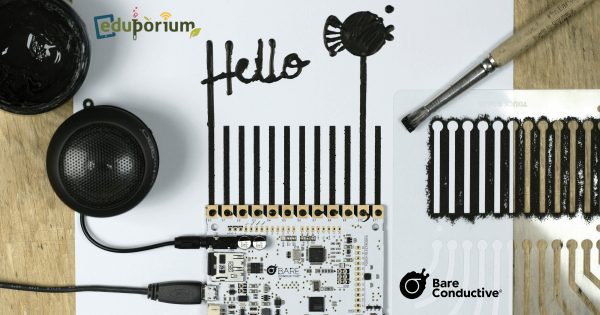Snap Circuits’ compact, classroom-friendly kits allow educators to introduce key STEM ideas, like electricity, motion, and environmentalism while students play. Talk about a win-win situation. Among plenty of others, you’ve got the Snaptricity kit, the Motion kit, Green kit, and Arcade Kit—all of which are game changers in hands-on learning.
Maker Ed
Maker Ed has rapidly evolved into a big and important component of 21st century learning. Born out of the culturally impactful Maker Movement, maker education involves providing students with opportunities for hands-on construction, investigation, problem solving, collaboration, and more—all with this community-centric approach. In Maker Ed, students often excel with new types of opportunities to showcase their skills or to develop new ones. With so many potential projects to work on in the classroom or in school makerspaces, adding purposeful, hands-on work to the school day is very effective and inspiring. And, more importantly for educators, there's no wrong way for them to go about introducing maker education. It can be as complex as using various advanced 3D printers or as simple as building with popsicle sticks.
Aside from the likelihood of positively impacting students, Maker Ed is also popular because of its real-world connections. Not only can children further develop key technical skills, maker opportunities also help them to bolster some top soft skills. Making typically involves a lot of collaboration and this is especially true as students move into middle or high school. With unique, fluid opportunities, kids can simultaneously work on bolstering communication, teamwork, and other soft skills in the process. Plus, whether they are using classroom 3D printers, CNC machines, or even low-tech tools, they'll grasp a better understanding on using technology for good as well. Some solid product lines across Maker Ed are 3Doodler, MakerBot, LulzBot, Glowforge, and more. With these innovative solutions, students in all grade levels can truly propel their creative acumen.
-
We Need YOU to Help Us Get to ISTE 2018 in Chicago!
In our first year of attending the ISTE Conference last summer, we learned a lot about this event, its attendees, the atmosphere, and what it takes to have a successful trip. Now, we want to take things a step further and help the educators who come from all over the world on another level. We want to be part of -
Eduporium Experiment | Snap Circuits Arcade Kit
Today, I experimented with the Snap Circuits Arcade Kit, a kit that allows students to build over 200 exciting projects and includes 20-plus Build and Play games. With over 35 parts, including a programmable word fan, tri-colored orb, and a pre-programmed micro-controller, the Snap Circuits Arcade kit is perfect for projecting a light arcade show! -
3Doodler: Innovative Artwork in the Palm of your Hand
With the affordable 3Doodler, students as young as 10 years old can design and engineer three-dimensional objects to enhance their artwork and their creativity! With its lightweight frame and simplified controls, 3Doodler helps kids add tech-based, artistic innovation to the school day with artistic creativity and STEM connections. -
Industries in which 3D Printing Could Take Over
Engaging in 3D printing allows students to experience learning from brand new angles and put their creativity to use in ways that will legitimately help them prepare for their futures. Right now, scientists seem to using 3D printing for something new every day—in some industries that you would expect and others that are pretty surprising. -
Eduporium Experiment | MOD-t 3D Printer Pt. 2
The MOD-t was once a great makerspace option, but is discontinued. Check out our Tips and Tricks blog for the latest updates. and don’t let its sleek design fool you. The MOD-t 3D printer is completely user-friendly with only one button to press. It also prints with eco-friendly PLA filament and features Wi-Fi connectivity. -
How to Get a FREE 3D Printer this Holiday Season
If you buy three MakerBot Replicator+ 3D printers and a 1-year plan of MakerCare Preferred on each of them on or before Dec. 30, you will get a fourth Replicator+ absolutely FREE! A free 3D printer—and a top-notch one at that! So, like we said, if you’ve been toying with the idea of bringing 3D printing to your students, now -
BIG Cyber Monday EdTech SAVINGS For YOU!
Rather than have two separate sales for Black Friday and Cyber Monday, we thought we’d just combine the two into one big, long, savings-filled event. So, all the savings you could get starting Friday at midnight are going to continue until Tuesday at midnight. Open the post to shop and save on brands like Snap Circuits, Makey Makey, and more. -
Eduporium Experiment | 3D Simo Mini
The 3D Simo has four functionalities, including 3D printing, soldering, burning, and foam-cutting, making it an ideal addition for starting a makerspace! Just change the tip and you have a whole new tool. It can connect via Bluetooth to a device with the 3D Simo app, on which students can create material profiles, watch videos, and more. -
Bare Conductive's Touch Board: Transform a Surface to a Sensor
You’ve probably already seen their conductive paint, conductive paint pen, and glowing house set. Well, now they have some new additions and we’re ready to share them with everyone! And, the best part is that you don’t even have to be a seasoned programmer to be able to build interactive projects that will amaze all who experience them!




